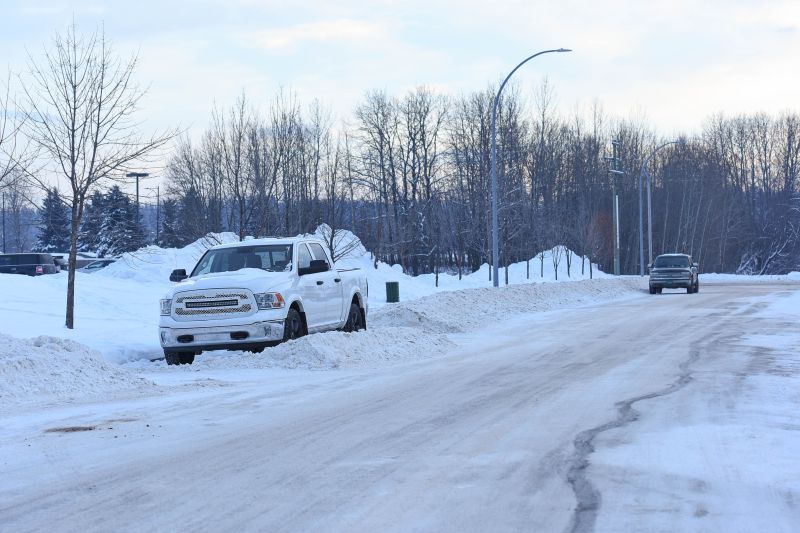During a recent Whitecourt Town Council regular meeting, Community Peace Officer 1 Lance Grywacheski and Bylaw Officer Steven Lang presented the 2022 Municipal Enforcement Annual Report, which breaks down the activities of the Community Safety Department’s Municipal Enforcement officers.
The report provided an overview of the department program and shared information on the department’s hours and reporting policies, critical areas of enforcement, enforcement officers’ duties, relevant department changes, ticket statistics, highlights throughout the year, and goals for 2023. Whitecourt’s Director of Community Safety, Lee Hardman, joined Grywacheski and Lang for the presentation.
Whitecourt’s municipal enforcement duo enforces the Traffic Safety Act, Provincial Procedures Act, Animal Protection Act, Environment Protection Act, Enhancement Act, Dangerous Dog Act, Trespass to Premises Act, and the Tobacco Reduction Act. Alongside provincial regulations, Community Peace/Bylaw officers enforce Municipal bylaws such as Traffic Safety, Noise, Animal Control, Land Use, and Community Standards.
Grywacheski and Lang handle many duties, including receiving complaints and inquiries, investigating them, and advising of infractions or charges if necessary. They also assist the local RCMP and town departments as needed. For seven months of 2022, Grywacheski was the sole municipal enforcement officer until Lang joined the department in October.
Through 2022, thirty-four percent of the tickets issued, totalling 316, were for unsightly/nuisance premises. Traffic tickets comprised twenty-four percent of tickets (230), and traffic warnings (182) made up nineteen percent. The final two pieces of the pie showed that municipal bylaw complaints totalled fifteen percent of tickets (144), and animal control-related tickets totalled eight percent (75). There were a total of 1,313 municipal enforcement tickets written in 2022.
With high numbers for total tickets issued, the report presented to Council showed a further breakdown of what infractions resulted in the most tickets and compared those numbers against the same violations from the previous two years, 2020-2022, giving three years of data to compare. Of the three, 2022 was not the highest. In 2020, there were 1,534 tickets issued and 1,175 in 2021. Though there was an increase in tickets from 2021 to 2022, over 220 more tickets were issued in 2020.
“The purpose of this annual report is to keep Council abreast of all activities of our municipal enforcement officers for the year, and it is also a requirement of the Solicitor General that we report these things at year-end,” explained Director Hardman.
Councillor Derek Schlosser asked what a typical day would look like, referencing someone who doesn’t have their snow shovelled in front of their house on the walkway. “Is that typically a warning or a ticket? How does that work?”
Grywacheski said they warn everybody and that repeat offenders might get a ticket. He said typically, there would be two warnings. “Depending on what the situation is, if it’s heavy and obstructing and dangerous, a real safety concern, we deal with that a little quicker.” Mayor Tom Pickard asked if they had noticed a change with covered sidewalk issues, given the new snow removal procedures in place. “The compliance is really high. I think it’s about 95+ percent for compliance with the change,” explained Grywacheski.
In response to a question about towing vehicles during snow clearing and how it is decided whether an area will be a “tow if you park” or a warning-only location, Grywacheski said it depended on where the clearing was taking place. “Some of our zones are really heavy for traffic, so they post the enforcement signs (towable) and other areas like, say through Park Drive, you might only have two or three vehicles on there, so it’s not a problem to get most of the snow removed without enforcement.”
Grywacheski explained that narrow roadways with a higher traffic volume tend to fall under the enforcement side rather than warnings because the volume of vehicles in the area would be challenging to work around. Sites like duplexes or apartment complexes with narrow roadways wouldn’t offer the machinery enough space to drive side by side and clear the snow if vehicles parked there. When the enforcement signs are up, residents who park on the roadway are more likely to be towed. “They can’t clear it otherwise,” said Grywacheski.
Council also discussed residents pushing snow onto the roadways in residential areas. Mayor Pickard said some residents might think they can do it because they see it happen elsewhere in the community. “People in residential areas see downtown businesses pushing snow onto the street and think they can as well. It’s two different sets of rules. Commercial downtown (businesses) are allowed to push snow onto the street because that’s our bylaw.” Grywacheski said downtown businesses don’t have boulevards to place the snow, unlike homes that have space to place it.
Tickets for parking in fire lanes or too close to fire hydrants were higher than in previous years. Four tickets were issued for blocking fire hydrants/lanes in 2020, five in 2021, and 10 in 2022, a small number but still a notable jump. Drivers parking in handicapped zones also saw an increase. Only one ticket was issued in 2020, and none in 2021. However, in 2022, six tickets were issued. Most other numbers were down or near the same as in previous years.
Goals for municipal enforcement in 2023 include moving Bylaw Officer Steven Lang up to the Peace Officer designation. Both officers look to add training to their skill set this year, further enhancing the safety and quality of municipal enforcement in the community.








More Stories
High-speed action, some trickery and huge hits mark the start of the Wolverines’ 2025 playoffexperience
Reminiscing with Residents: Spruceview edition with Jurgen Moll
A great ending to the regular season, with the post-season coming up next